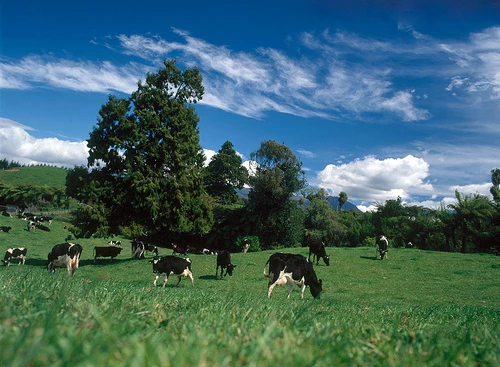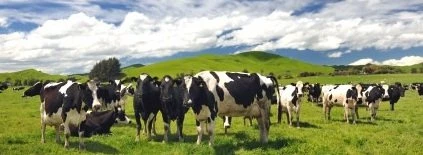
In the world of fitness and nutrition, the debate over the superiority of grass-fed whey protein versus conventional whey continues to stir up discussions. While both options provide a source of protein, the nutritional disparities between them are significant. In this article, we delve deep into the subject to uncover why grass-fed whey emerges as the optimal choice for health-conscious individuals.
Understanding Grass-Fed Whey
Before delving into its benefits, let's grasp the essence of grass-fed whey. Unlike conventional whey, which often originates from grain-fed cows confined in feedlots, grass-fed whey comes from cows that roam freely in pastures, grazing on natural grass. This distinction in the cow's diet profoundly impacts the quality and composition of the whey protein it produces.

Nutritional Superiority of Grass-Fed Whey
- Higher Nutrient Density: Research conducted by the Food and Agriculture Organization (FAO) indicates that grass-fed whey contains higher levels of essential nutrients such as omega-3 fatty acids, conjugated linoleic acid (CLA), and vitamins A and E compared to its conventional counterpart [1]. These nutrients offer various health benefits, including improved heart health, enhanced immune function, and reduced inflammation.
- Optimal Omega-3 to Omega-6 Ratio: Grass-fed whey boasts a more balanced omega-3 to omega-6 fatty acid ratio, aligning more closely with the ideal ratio recommended for human consumption [2]. This balance is crucial for maintaining overall health and reducing the risk of chronic diseases, including cardiovascular ailments and inflammatory conditions.
- Free from Hormones and Antibiotics: Unlike grain-fed cows, which are often administered hormones and antibiotics to promote growth and prevent disease in cramped feedlot conditions, grass-fed cows typically require minimal intervention. As a result, grass-fed whey is free from artificial hormones and antibiotics, ensuring a cleaner and safer protein source for consumers.
Environmental and Ethical Considerations
Apart from its nutritional benefits, opting for grass-fed whey also supports sustainable agricultural practices and animal welfare. By choosing products derived from pasture-raised cows, consumers contribute to the preservation of natural ecosystems, promote animal well-being, and reduce the environmental footprint associated with intensive grain farming and feedlot operations.

Addressing Common Misconceptions
Despite the compelling evidence supporting the superiority of grass-fed whey, some misconceptions persist. Let's address a few of them:
- Cost Concerns: It's true that grass-fed whey may come with a slightly higher price tag compared to conventional whey. However, considering its superior nutritional profile and the associated health benefits, the investment in grass-fed whey is a worthwhile one for those prioritising optimal nutrition and overall well-being.
- Availability Issues: While grass-fed whey may have been less accessible in the past, the growing demand for high-quality, sustainable products has led to an expansion in availability. Many health food stores, online retailers, and specialty stores now offer a variety of grass-fed whey protein options to cater to diverse consumer preferences.
Incorporating Grass-Fed Whey into Your Diet
Now that we've established the superiority of grass-fed whey, let's explore some practical tips for incorporating it into your daily routine.
- Post-Workout Recovery: Consuming grass-fed whey protein post-workout can help replenish muscle glycogen stores, stimulate muscle protein synthesis, and facilitate faster recovery after intense exercise sessions.
- Meal Replacement: For busy individuals seeking a convenient and nutritious meal option, blending grass-fed whey protein powder with fruits, vegetables, and healthy fats can create a satisfying and nutrient-dense meal replacement shake.
- Snack Enhancement: Boost the protein content of your snacks by adding a scoop of grass-fed whey protein powder to yogurt, oatmeal, or smoothie bowls for a quick and satiating snack option.
Conclusion
In conclusion, the nutritional superiority of grass-fed whey protein is undeniable. From its higher nutrient density and optimal fatty acid profile to its support for sustainable agriculture and animal welfare, grass-fed whey emerges as the preferred choice for health-conscious individuals seeking to optimise their nutrition and overall well-being. By making informed choices and incorporating grass-fed whey into your diet, you can take a significant step towards achieving your health and fitness goals while supporting a more sustainable and ethical food system.
